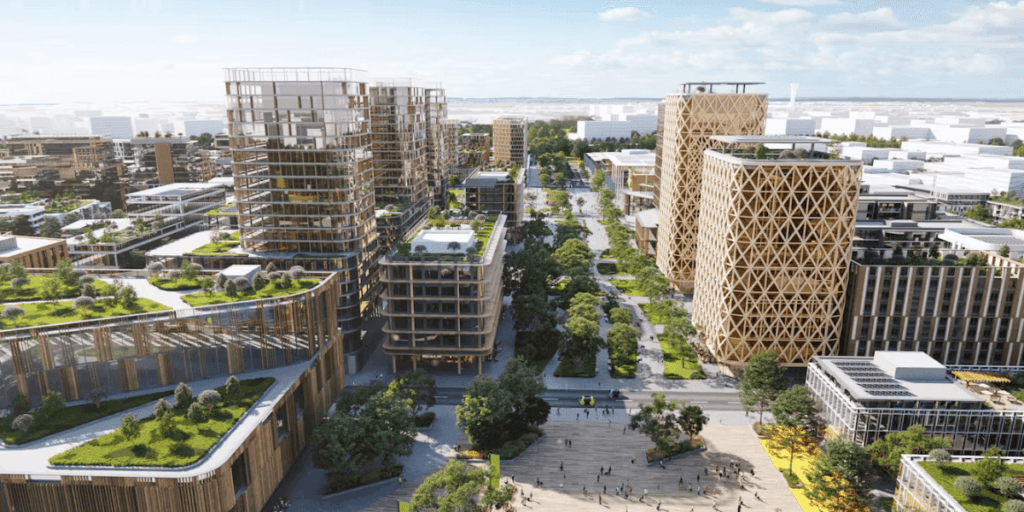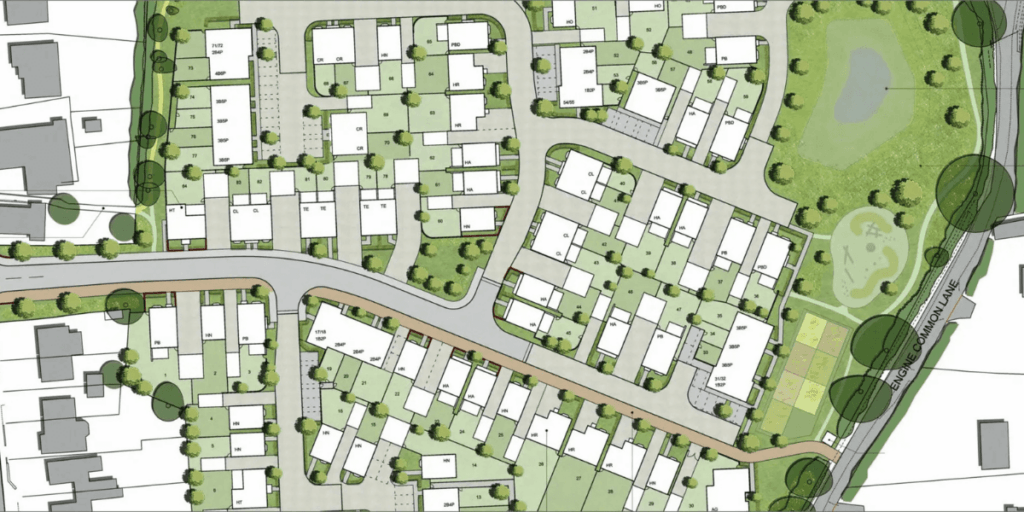Introduction
Penrith, a vibrant and growing city in New South Wales, Australia, is undergoing significant development and transformation. This growth necessitates careful and strategic planning to ensure sustainable and harmonious urban development. This is where the role of a town planner Penrith becomes crucial. Town planners are the professionals who shape the physical, social, and economic fabric of cities, making them more livable, sustainable, and prosperous. In this comprehensive article, we will explore the various facets of town planning in Penrith, highlighting the responsibilities and duties of a town planner Penrith, the impact of their work on the city’s future, the complexities of navigating zoning laws and building codes, the importance of community engagement, and the evolution of urban design in balancing growth and sustainability.
The Role of a Town Planner in Penrith: Responsibilities and Duties

A town planner Penrith plays a pivotal role in the development and management of urban areas. Their responsibilities encompass a wide range of tasks that are essential for the orderly and sustainable growth of the city. These tasks include:
1. Development Assessment and Control
One of the primary responsibilities of a town planner Penrith is to assess and control development applications. This involves evaluating proposals for new buildings, subdivisions, and land use changes to ensure they comply with local planning policies and regulations. Town planners must consider factors such as environmental impact, community needs, and infrastructure capacity when making their assessments.
2. Strategic Planning
Town planners in Penrith are also involved in strategic planning, which involves developing long-term plans and policies for the city’s growth and development. This includes preparing local environmental plans (LEPs), development control plans (DCPs), and master plans that guide land use, transportation, housing, and community facilities.
3. Policy Development
Developing and implementing planning policies is another key duty of a town planner Penrith. These policies address various aspects of urban development, such as housing affordability, environmental sustainability, heritage conservation, and economic development. Town planners must stay updated with current trends and best practices in urban planning to formulate effective policies.
4. Community Engagement
Engaging with the community is a vital part of a town planner’s role. They organize public consultations, workshops, and meetings to gather input from residents, businesses, and stakeholders. This ensures that planning decisions reflect the needs and aspirations of the community. Town planners also communicate planning outcomes and decisions to the public, fostering transparency and trust.
5. Environmental Planning
Town planners Penrith are responsible for integrating environmental considerations into the planning process. This includes conducting environmental impact assessments, promoting sustainable development practices, and protecting natural resources and ecosystems. They play a crucial role in addressing climate change and ensuring the resilience of urban areas.
Planning for the Future: How Town Planners Shape the Development of Penrith

The work of town planners Penrith is instrumental in shaping the city’s future. Through careful planning and strategic decision-making, they influence the physical and socio-economic development of Penrith in several ways:
1. Land Use Planning
Town planners Penrith determine the allocation and zoning of land for different uses, such as residential, commercial, industrial, and recreational. By designating appropriate land uses, they ensure a balanced distribution of activities and prevent conflicts between incompatible uses. This contributes to a more organized and efficient urban environment.
2. Housing and Infrastructure
Addressing housing needs and ensuring the provision of essential infrastructure are critical aspects of town planning in Penrith. Town planners work to promote diverse housing options, including affordable and social housing, to cater to the needs of the population. They also plan for the development of infrastructure such as roads, public transport, water supply, and sewage systems, supporting the city’s growth and improving the quality of life for residents.
3. Economic Development
Town planners Penrith play a significant role in fostering economic development by creating an environment conducive to business growth and investment. They identify opportunities for commercial and industrial development, attract businesses to the area, and support the development of local enterprises. By promoting economic activity, town planners contribute to job creation and the overall prosperity of Penrith.
4. Environmental Sustainability
Sustainability is a core principle of modern town planning. Town planners Penrith incorporate sustainable practices into their plans and policies to minimize the environmental impact of urban development. This includes promoting energy-efficient buildings, encouraging the use of renewable energy sources, and implementing green infrastructure solutions such as parks, green roofs, and sustainable drainage systems.
5. Social and Cultural Development
Town planners Penrith also focus on enhancing the social and cultural fabric of the city. They plan for the provision of community facilities, parks, and public spaces that foster social interaction and cultural activities. By creating inclusive and vibrant urban environments, town planners help build a sense of community and improve the overall quality of life for residents.
Navigating the Regulatory Landscape: Understanding Zoning Laws and Building Codes in Penrith

Navigating the regulatory landscape is a complex and essential part of town planning in Penrith. Town planners must have a thorough understanding of zoning laws and building codes to ensure that development projects comply with legal requirements. Here are some key aspects of the regulatory framework in Penrith:
1. Zoning Laws
Zoning laws in Penrith are established through local environmental plans (LEPs), which outline how land can be used and developed. These plans divide the city into different zones, each with specific land use regulations. Common zones include residential, commercial, industrial, and recreational. Town planners must ensure that development proposals align with the zoning requirements of the relevant zone.
2. Development Control Plans (DCPs)
Development control plans (DCPs) provide detailed guidelines for specific types of development within Penrith. These plans supplement the LEPs and address various aspects of development, such as building design, landscaping, parking, and heritage conservation. Town planners use DCPs to assess development applications and ensure that projects meet the required standards.
3. Building Codes and Standards
Building codes and standards set the minimum requirements for the design and construction of buildings to ensure safety, health, and accessibility. In Penrith, the Building Code of Australia (BCA) is the primary regulatory framework that town planners and builders must adhere to. Town planners review building plans to verify compliance with the BCA and other relevant standards.
4. Environmental Regulations
Environmental regulations play a crucial role in town planning in Penrith. These regulations aim to protect natural resources, prevent pollution, and promote sustainable development. Town planners must consider environmental impact assessments (EIAs) and comply with regulations such as the Environmental Planning and Assessment Act 1979 when assessing development proposals.
5. Heritage Conservation
Heritage conservation is an important aspect of the regulatory landscape in Penrith. Town planners must identify and protect heritage-listed buildings and sites, ensuring that development projects do not compromise their historical and cultural significance. This involves working with heritage specialists and adhering to conservation guidelines.
Collaborating with Communities: The Importance of Engagement in Town Planning in Penrith

Community engagement is a cornerstone of effective town planning in Penrith. Town planners recognize that involving the community in the planning process leads to better outcomes and more inclusive development. Here are some reasons why community engagement is vital:
1. Reflecting Community Needs and Aspirations
By engaging with the community, town planners Penrith gain valuable insights into the needs, preferences, and aspirations of residents. This information helps planners design projects that align with the community’s vision and address their concerns. It ensures that planning decisions are more responsive to the needs of the people.
2. Building Trust and Transparency
Community engagement fosters trust and transparency in the planning process. When residents are informed and involved in decision-making, they are more likely to support the outcomes. Town planners Penrith can build stronger relationships with the community by being open, transparent, and responsive to feedback.
3. Enhancing Public Participation
Public participation is a key component of democratic planning. Town planners Penrith use various methods, such as public meetings, workshops, surveys, and online platforms, to engage with the community. These participatory processes empower residents to contribute their ideas and opinions, ensuring that diverse voices are heard.
4. Identifying Potential Issues Early
Engaging with the community early in the planning process helps identify potential issues and conflicts before they escalate. Town planners can address these concerns proactively, finding solutions that balance different interests. This approach leads to smoother project implementation and reduces the likelihood of disputes.
5. Creating a Sense of Ownership
When residents are actively involved in planning, they develop a sense of ownership and pride in their community. This sense of ownership fosters a more positive attitude towards development projects and encourages community members to take an active role in maintaining and improving their neighborhoods.
The Evolution of Urban Design in Penrith: Balancing Growth and Sustainability

Urban design in Penrith has evolved over the years to balance the demands of growth and sustainability. Town planners play a crucial role in this evolution, ensuring that the city’s development is sustainable, resilient, and livable. Here are some key aspects of urban design in Penrith:
1. Sustainable Development Practices
Sustainable development practices are at the forefront of urban design in Penrith. Town planners promote the use of energy-efficient buildings, renewable energy sources, and sustainable materials. They also encourage the development of green infrastructure, such as parks, green roofs, and rainwater harvesting systems, to enhance environmental sustainability.
2. Smart Growth Principles
Smart growth principles guide urban design in Penrith, focusing on creating compact, mixed-use, and walkable communities. Town planners aim to reduce urban sprawl, promote public transport, and enhance accessibility to amenities. By designing neighborhoods that integrate residential, commercial, and recreational spaces, planners create vibrant and inclusive communities.
3. Resilience and Adaptation
Town planners in Penrith prioritize resilience and adaptation to address the challenges of climate change and natural disasters. This involves planning for flood management, bushfire protection, and heat mitigation. By incorporating resilient design principles, planners ensure that urban areas can withstand and recover from adverse events.
4. Preserving Green Spaces
Preserving and enhancing green spaces is a key aspect of urban design in Penrith. Town planners work to protect natural areas, parks, and recreational spaces, providing residents with access to nature and promoting outdoor activities. Green spaces contribute to the well-being of the community and enhance the city’s aesthetic appeal.
5. Cultural and Heritage Preservation
Urban design in Penrith also focuses on preserving the city’s cultural and heritage assets. Town planners identify and protect heritage-listed buildings, sites, and landscapes, ensuring that new development respects and complements the historical context. This approach helps maintain Penrith’s unique identity and cultural heritage.
Expert Town Planner Penrith | Professional Planning Services

In conclusion, the role of a town planner Penrith is multifaceted and vital for the sustainable development of the city. Town planners are responsible for assessing and controlling development, strategic planning, policy development, community engagement, and environmental planning. Their work shapes the future of Penrith by determining land use, addressing housing and infrastructure needs, fostering economic development, and promoting environmental sustainability.
Navigating the regulatory landscape requires a deep understanding of zoning laws, building codes, and environmental regulations. Town planners Penrith engage with the community to reflect their needs and aspirations, build trust, and enhance public participation. The evolution of urban design in Penrith focuses on balancing growth and sustainability through sustainable development practices, smart growth principles, resilience, green space preservation, and cultural and heritage preservation.
By embracing these principles and practices, town planners Penrith play a crucial role in creating a livable, sustainable, and prosperous city for current and future generations. Whether you are a resident, developer, or stakeholder, understanding the importance of town planning and the expertise of town planners in Penrith is essential for contributing to the city’s positive and sustainable growth.



